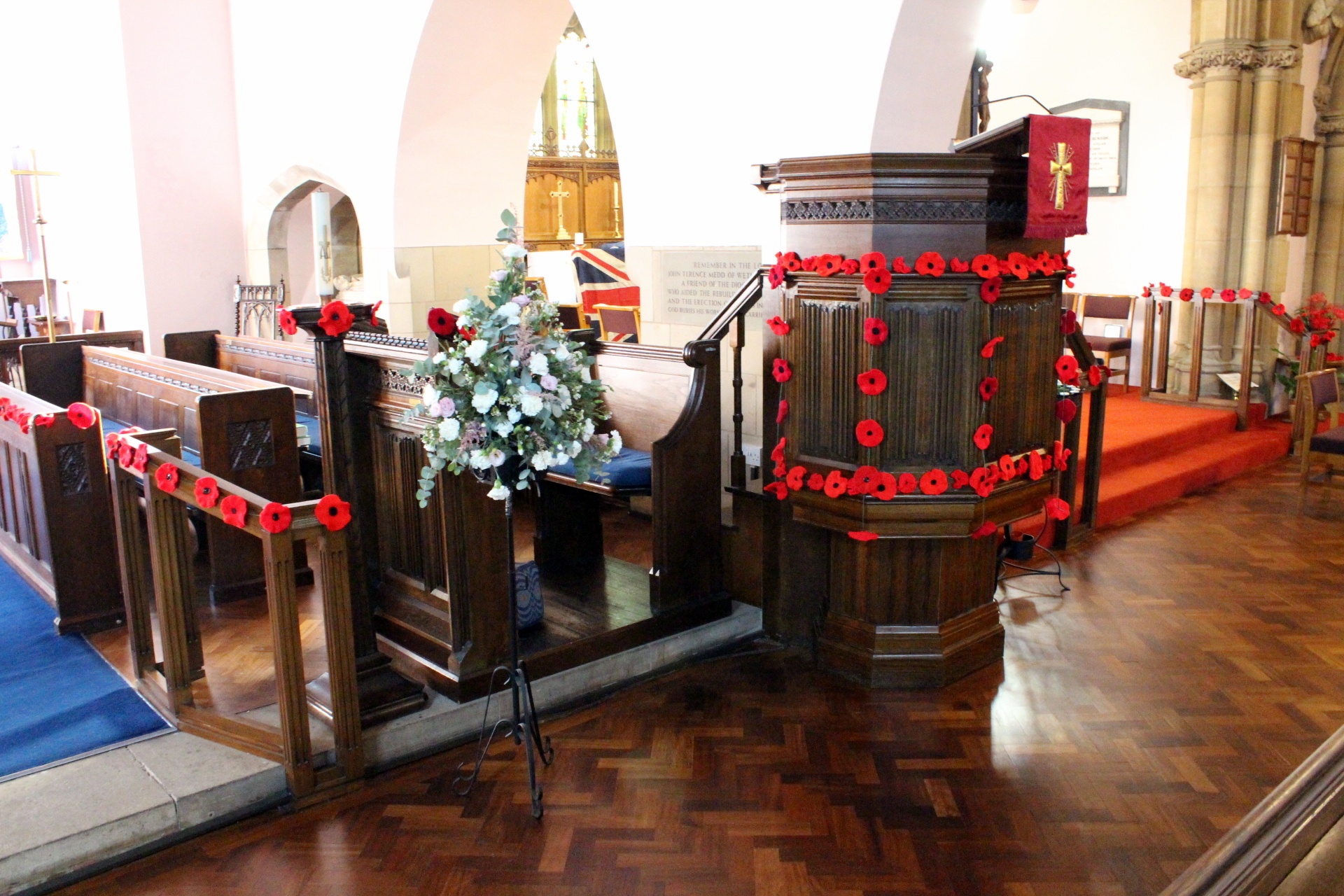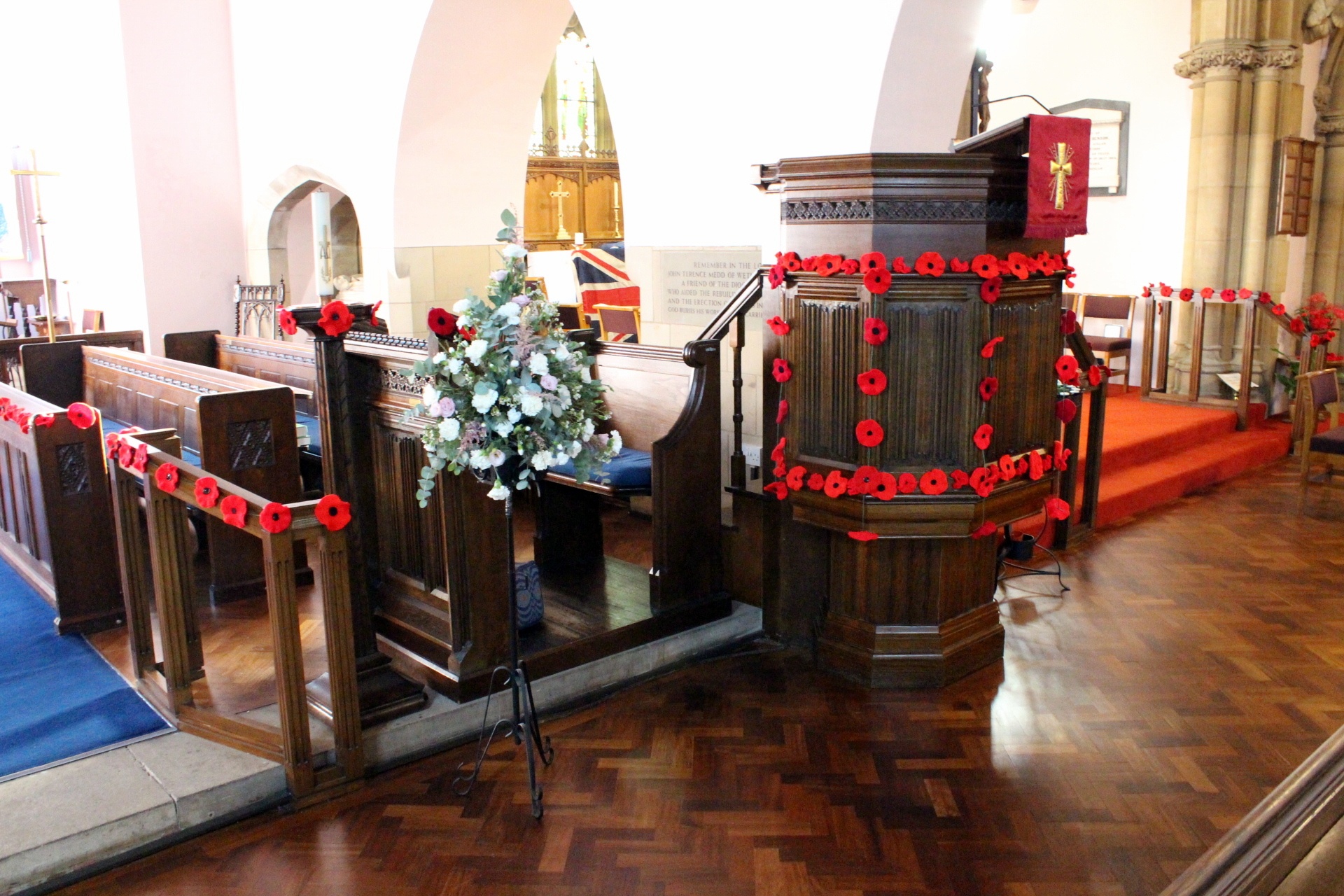February Magazine 2026

NOTE FROM THE EDITORS
Welcome to your Early(!!) February magazine, as always we would welcome some articles from within our parish, home grown articles are much better than those we source from elsewhere.
Pauline & Bob - co-editors..
Updated 29th January 2026
_________________________________________________________
Dear Friends,
February is often a transitional time, coming after the cheering celebrations of Christmas and New Year but before Spring appears for sure. But now the weather is cold and wet, whilst the daytime is short. Yet we can see signs of change. The snow drops have appeared in the corner of the Vicarage garden, and the cut daffodils are blooming in a vase. February in the ecclesiastical calendar also sees growth begin. The Lent season starts on the 18th. That is the day when the Church begins to prepare for Easter – for the death and resurrection of Jesus Christ, and for all the great changes that they bring.
The Church calendar discloses something more important than the natural season. In this season, when there seems to be little life and growth, below the sodden soil much more Is happening. The seeds and roots lie in dormant, and life-giving energy is gathering. They wait for the Sun to warm the earth once more, shoots will break out of the earth and show forth life. In the Lent season, we, like the seeds that lay below the surface, seek growth; but the growth for which we look is not mere natural growth. It is the life-giving nourishment of the traditional Lenten discipline that will restore spiritual strength.
This month the Church of England produces its Lent reflection booklet. Draw Near: Life-giving habits for Lent offers for each day a Bible text, a short reflection, a prayer and a suggestion about practical action. It aims to cultivate habits of thought and a pattern of action that will help us to grow as disciples of Christ day by day, especially as we prepare to celebrate the great mystery of God’s saving love at Easter time.
The reflections are centred around a summary of the Christian way, drawn from Common Worship. They identify six activities essential to our calling as disciples. Each week a different contributor explores an aspect of Christian discipleship – such as worshipping together, praying, exploring the Bible, sharing communion, offering service and sharing the good news with others.
So may this month be for us the time to begin our focusing more on our spiritual growth through Lent discipline.
Norma
_______________________________________________________________________________
Introducing Dame Sarah Mullally – the 106th Archbishop of Canterbury
The Rt Revd and Rt Hon Dame Sarah Mullally DBE officially became Archbishop of Canterbury on 28th January 2026, when she was legally confirmed at St Paul’s Cathedral.
Most people know that she had been Bishop of London for several years, and that she is the first woman to ever become Archbishop of Canterbury. But what else do you know about her?
- She was born in Woking in 1962, and is one of four children, with two sisters and one brother.
- She attended Winston Churchill Comprehensive School and Woking Sixth Form College. She went on to South Bank Polytechnic and Heythrop College, University of London
- She worked as a nurse in the National Health Service, which she has described as “an opportunity to reflect the love of God”. She specialised as a cancer nurse and became a ward sister at Westminster Hospital, before being made Director of Nursing at Chelsea and Westminster Hospital.
- In 1999, at the age of 37, she was appointed the Government’s Chief Nursing Officer for England in the Department of Health. She was the youngest person ever to be appointed to the post. Bishop Sarah was made a Dame Commander of the British Empire in 2005 in recognition of her outstanding contribution to nursing.
- She had become a Christian at the age of 16. While working as the Chief Nursing Officer for England, she discerned a call to ordination and entered training ministry at the South East Institute for Theological Education.
- She was ordained in 2001 and served her curacy in St Saviour’s Battersea Fields, initially as a self-supporting minister, before leaving her government post in 2004, which she has described at the time as “the biggest decision I have ever made”.
- In 2012 she was installed as Canon Treasurer at Salisbury Cathedral and three years later took the role as Suffragan Bishop of Crediton in the Diocese of Exeter, the fourth woman to become a Bishop in the Church of England.
- On 12th May 2018, Bishop Sarah was installed as the 133rd Bishop of London at St Paul’s Cathedral, the first woman to hold the role.
- Bishop Sarah sits in the House of Lords as one of the Lords Spirituals, having been introduced on 24th May 2018. Her maiden speech paid tribute to the NHS on its 70th anniversary, telling the Lords: “I am the Bishop I am today because of that first vocation to nursing, and compassion and healing are constants at the heart of who I am.”
- She was sworn in as a member of the Privy Council in March 2018 and became Dean of Her Majesty’s Chapels Royal in July 2019.
- As Bishop of London, she led the Church of England’s Living in Love and Faith process from 2020 to 2023. This included the formative stages of discernment and decision making which saw the introduction of the Prayers of Love and Faith for same-sex couples
- She has served on the Church’s National Safeguarding Steering Group and is also Lead Bishop for Health and Social Care issues.
- As a Lord Spiritual, she has drawn from both her pastoral experience and her background in nursing and healthcare and has played a key role in the ongoing debates on assisted dying.
- This year, she chaired the Triennium Funding Working Group that developed the Church of England’s three-year spending plan that led to significant investments in local churches and parish clergy.
- Archbishop Sarah is married to Eamonn, an Irish-born IT and Enterprise Architect who enjoys beekeeping and volunteering as a London tourist guide.
- The couple have two grown-up children, Liam and Grace.
- Archbishop Sarah has continued her interest in the health service having been a non-executive director at the Royal Marsden NHS Foundation Trust then at Salisbury NHS Foundation Hospital.
- She is Chair of Christian Aid.
- She has spoken openly about her dyslexia, describing her difficulties with writing and reading.
- In her spare time, she loves cooking, walking and pottery.
_________________________________________________________
The C of E agrees to spend £12.4 million on social and racial justice programmes
Back last summer, when the C of E announced its three-year national spending plans, the Triennium Funding Working Group (TFWG) included an allocation of £12 million for the areas of social and racial justice in the 2026-2028 triennium.
The precise allocation of that £12 million was a matter for the Archbishops’ Council to determine. It has now agreed that £7 million will be spent on racial justice programmes over a three-year period, from 2026-2028. An additional £200,000 will also be carried forward from 2023-2025 and spent on racial justice.
A further £5 million will be spent in support of disability programmes. This money will aim to help the C of E become more diverse and inclusive, dismantling barriers from worship, participation and leadership in the Church.
_______________________________________________________
Are you ready for the General Synod elections in July?
This summer brings us the election of a new General Synod. And the people who get voted on to this new General Synod are the ones who will be voting either for or against the stand-alone services of blessing for same-sex couples that are expected in 2028.
Whatever you believe, when it comes to choosing your candidates for the next General Synod, here are some common-sense tips from synodical experts:
“It’s not always clear from what candidates say about themselves what their actual position is on some quite hot-potato issues like human sexuality and women’s ministry.”
“If the candidate does not mention an issue that you care about, don’t assume they would agree with you, and if they do say something be very clear as to what they are and aren’t saying.”
“It might be helpful to talk about listening positively to and respecting the views of others, even when we find ourselves disagreeing.”
________________________________________________
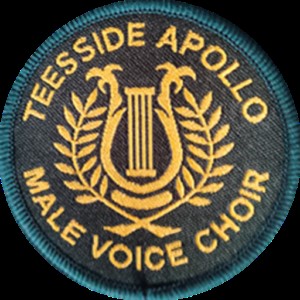
APOLLO MALE VOICE CHOIR
On Friday 20th February at 7pm the Apollo Male Voice Choir will be giving a concert at St Mary’s in memory of Martin Bell.
Martin sang bass with St Mary’s Choir for many years, and was also a past member of the Apollo Choir.
He died suddenly in August last year and this concert is to celebrate his life.
Tickets £10 (including light refreshments) are available from church, or from any Apollo Choir member.
_________________________________________________
AGAPE MEALS
Agape (meaning fellowship and love)
Simple Agape meals will take place in church at 12.30pm on Wednesdays Feb 25th, March 18th, and 25th.
If you would like to attend any of the meals, there will be a list in church to sign.
If you wish to know more about Agape, please speak to the Vicar.
_____________________________________________________________________
LENT COURSE ON ZOOM
Lentwise: Spiritual Essentials for real life.
As we journey through life, we face challenges - both big and small. What spiritual essentials will help us survive life's storms?
Lentwise is a Lent course exploring direction, nourishment, wisdom, refreshment, and security.
Dates: Tuesdays 7pm
Feb 24th, March 3rd 10th 17th 24th .
Please speak to Norma if you are interested in joining in.
______________________________________________________________

THE MEANINGFUL CHOCOLATE COMPANY
Easter 2026 is Early this year!
Out of the 80 million Easter Eggs given in the UK every year, only The Real Easter Egg is Fairtrade and includes a copy of the Easter story in the box.
The Real Easter Egg is NOT available in UK supermarkets.
However, if you wish to purchase one (or more) there is a form at the back of church to place your order. Earlier rather than later!!
_________________________________________________________

February Diary Page
Holy Communion service each Sunday at 9.00am (Said BCP service)
Sung Eucharist each Sunday at 10.00am (Common Worship)
Holy Communion each Tuesday at 10.00am (Said BCP service)
Said Evening Prayer each Sunday at 6.30pm.
BIBLE STUDY (via ZOOM) EVERY WEDNESDAY AT 7PM DURING TERM TIME.
PRAYER MEETING FIRST MONDAY IN THE MONTH 7pm IN CHURCH
SUNDAY 1st FEBRUARY
CANDLEMAS
9.00am Holy Communion
10.00am Parish Communion
6.30pm Evening Prayer
SATURDAY 7th FEBRUARY
Churchyard tidy 9.30am onwards
SUNDAY 8th FEBRUARY
SECOND SUNDAY BEFORE LENT
9.00am Holy Communion
10.00am Parish Communion
6.30pm Evening Prayer
WEDNESDAY 11th FEBRUARY
Coffee Morning 10am -11.30am
PCC Meeting 7.00pm
SUNDAY 15th FEBRUARY
SUNDAY NEXT BEFORE LENT
9.00am Holy Communion
10.00am Parish Communion
6.30pm Evening Prayer
WEDNESDAY 18th FEBRUARY
ASH WEDNESDAY
7.00pm Parish Communion with Imposition of Ashes
SUNDAY 22nd FEBRUARY
LENT 1
9.00am Holy Communion
10.00am Parish Communion
6.30pm Evening Prayer
Tuesday 24th February
Lent Course via Zoom 7pm
____________________________________________________________________

Church Roof Gulley
If the weather isn't too bad it is hoped that work will start on renewing the large gulley which is situated between the two large roofs, this gulley is a case of out of sight out of mind !!! If you cast your mind back to 2009 this is when the last gulley made of lead was stolen. Fast forward to 2022 and the modern replacement failed leading to the wet walls and damaged plaster we now have behind the choir stalls.
In conjunction with the architect a firm has been chosen and a suitable method and materials will be used to ensure a long lasting solution to the problem. This work will entail having scaffolding at the east end of the church.
Another aspect of the work to be done is the removal of the chimney (seen in the photograph) this is no longer required and another potential source of water ingress through the roof slates.
All necessary permissions have been sought and obtained for all aspects of the work.
________________________________________________

How people fast during Lent
Many of us fast during Lent. It seems that the kind of fast you undertake may be connected to your denomination. A recent survey found the following:
94% Black Majority Churchgoers give up all food for a set time.
85% of Orthodox churchgoers cut out specific foods and/or drinks.
83% of Pentecostal churches give up all food for a set time.
79% of Roman Catholics cut out specific foods and/or drinks.
76% of New Churches give up all food for a set time.
57% of C of E cut out specific foods and/or drinks
30% or less of Presbyterians, Methodists, and Baptists cut out specific foods and/or drinks.
The survey was done by the charity Green Christian
_____________________________________________

There is a lot of talk about ‘mindfulness’ these days, and how to find calm moments in our daily lives. Both the BBC and Classic FM have even got radio stations devoted to ‘mindful’ and ‘calm’ music. But as Christians, we have an extra, divine resource to call on, and you can gently remind your readers of this.
Peaceful mind
The Bible tells the story of Jesus and His stressed disciples in a boat in a storm. Like them, we also get hit by storms in life. And like them, we can know that Jesus is also with us. Why not take a moment to ponder these promises:
Cast your cares on the Lord and He will sustain you; He will never let the righteous be shaken. (Psalm 55:22)
Peace I leave with you; my peace I give you. I do not give to you as the world gives. Do not let your hearts be troubled and do not be afraid. (John 14:27)
Do not be anxious about anything, but in every situation, by prayer and petition, with thanksgiving, present your requests to God. And the peace of God, which transcends all understanding, will guard your hearts and your minds in Christ Jesus. (Philippians 4: 6-8)
_____________________________________________________
Editor: The Revd Dr Jo White considers the sermon in church
Reflecting Faith: Breaking the Word
For the last few months, we’ve been looking at the way that church services are put together. Last time we looked at the reading of the gospel, and how we honour that in our own body language (by standing up).
This month we will move on to ‘The Sermon’ which is often known as ‘Breaking the Word’. This parallels if you like, the ‘Breaking of the Bread’ which follows later in the service.
The Sermon is intended to be an expansion and perhaps an explanation of the Bible readings that have been used in the service. Often it sets the scene and context for the verses which are set at what often seems quite random and disconnected.
This is particularly true of the Old Testament reading, where not only the verses may be unconnected to readings from previous services, but often they are taken from totally different books; Isaiah one week and Jeremiah another.
So what is the preacher’s task here? It was once described to me as: to comfort the disturbed and to disturb the comfortable! That sounds a bit harsh, but when you think about it, isn’t that what we really need from our God? When we are in difficulties, whatever the cause, we need to know He’s there, and that He has our back, so to speak.
When things are going well for us, then that’s a good time to be working on recognising another weakness in ourselves and working towards lessening it.
There’s no sitting back on our laurels when we work for the Lord.
This month
As we start Lent this month, have a good listen to a few sermons. You can catch them in a church service or even on your computer. Most cathedrals have a website where they record their Sunday service in whole or in part, which you can listen to and take part wherever you are.
How were you before the sermon started and how did you feel at the end – was there something in it that you will think about over the coming week, or was it lovely comfort food? Whichever it was, may it bless you as you prepare for Lent.
___________________________________________

Break the Debt Blues: your path out of debt to a fresh start this year
As the post-Christmas bills continue to pile up, many of us feel under financial pressure. It can be a lonely time, but you don’t have to face it alone.
For Christians Against Poverty (CAP) have launched a new Five-Step Guide which is a roadmap to get you from financial worry to a fresh start. In a nutshell:
The First Step: Reach out to CAP for free, expert advice, tailored to your specific situation.
Friendly Support: Their local team will provide face-to-face visits and a supportive hand to hold.
An Expert Plan: CAP helps you build a realistic budget that prioritises your essentials, like food and housing.
A Fresh Start: CAP can handle the process of creditor negotiations, so that you can focus on building long-term financial stability.
CAP assures people that: “We believe that no one should have to stay awake at night worrying about money. Our local debt coaches are ready to listen, help you organise the paperwork, and walk with you every step of the way. Don’t let the “Debt Blues” define your year. Discover how simple it is to start your journey toward peace of mind.”
More info at:  https://capuk.org
https://capuk.org
_________________________________________
Canon Paul Hardingham considers the temptations of Christ.
How to Handle Temptation
‘I can resist everything but temptation’ (Oscar Wilde). During Lent we remember Jesus’ experience in the wilderness (Matthew 4:1-11), when ‘He was led by the Spirit to be tempted by the devil.’ (1). Temptation is a test of whether we do things our way or God’s way. After 40 days of fasting Jesus was tired, hungry and vulnerable. Like Him, the Devil will attack us at our most venerable moments, especially when we are stressed.
The first temptation was to turn stones into bread: Jesus’ ministry was not about putting His own needs first, but being nourished by God’s word. ‘We do not live by bread alone but by every word that comes from the mouth of God’ (Deuteronomy 8:3). Like Jesus, we need to make God our priority and trust Him completely.
The second temptation was to put God to the test: Jumping off the Temple pinnacle would have been a dramatic way for Jesus to gain popularity, but this was not God’s way! ‘Do not put the Lord your God to the test.’ (Deuteronomy 6:16). We too need to learn this lesson!
The third temptation was to worship Satan: The devil took Jesus up a mountain to offer Him worldly power. In contrast, His calling as Messiah was to be marked by suffering and honouring God. ‘Worship the Lord your God and serve Him only’ (Deuteronomy 6:13). This is to be our experience of living for God.
Jesus stands with us in our temptations. As we claim the promises of Scripture, like Him, we will find strength in the Spirit’s power and the victory of the Cross.
Consider these verses:
‘Watch and pray, so that you enter not into temptation. The spirit is willing, but the flesh is weak.’ (Matthew 26:41)
‘Since Jesus Himself has endured being tempted, He is able to help those who are tempted.’ (Hebrews 2:18)
‘Blessed is the man that endures temptation, for when he is tested, he shall receive the crown of life, which the Lord has promised to those who love Him. (James 1:12)
‘If you look at the world, you’ll be distressed. If you look within, you’ll be depressed. But if you look at Christ, you’ll be at rest!’ (Corrie Ten Boom).
_______________________________________________
1st February – Seiriol, saint of Puffin Island
You can find traces of old saints in most corners of the British Isles, but Seiriol is one of the only two saints connected to Anglesey, and certainly the ONLY saint connected to Puffin Island.
It was back in the 6th century that this gentle abbot first settled in Penmon, and built a little church. His ruined beehive cell still survives there today, as does the well from which he drew water, both for his own use, and also for baptising local people.
Like many other Celtic saints, Seiriol would have travelled by sea. So he felt comfortable near the coast on Anglesey, on low-lying land. Although he lived as a simple hermit, Seiriol soon attracted followers, and eventually he decided to establish a small monastery. He chose to build it on nearby Ynys Seiriol, now called Puffin Island.
That little monastery on Puffin Island saw some scary action in 632, when Edwin of Northumbria was chasing the Welsh king, Cadwallon, and ended up besieging him on the island. Cadwallon was finally conquered, and history moved on, but the monastic ruins of Seiriol’s little monastery are still there today.
Seiriol seems to have been a purely local saint who never attracted a very great number of followers. The only known dedications to him are at Penmon and Puffin Island. But Seiriol’s life and work are still a testimony today. He is a gentle and encouraging reminder of what an impact even a simple local Christian can achieve, by simply being faithful to Jesus Christ in the place where he is.
___________________________________________

February Crossword
Across
1 ‘What — is that to you?’ (Luke 6) (6)
4 ‘They threw the ship’s — overboard’ (Acts 27) (6)
7 The first murderer (Genesis 4) (4)
8 He was the head Levite in charge of the singing (1 Chronicles 15) (8)
9 Samson was noted for this (Judges 16) (8)
13 Solicit money or food from passers by (Acts 3) (3)
16 What William Booth’s Christian Mission became in 1878 (9,4)
17 Alliance of Religions and Conservation (1,1,1)
19 ‘I will praise your name for ever and ever. — — I will praise you’ (Psalm 145) (5,3)
24 Simon had (anag.) (8)
25 Desperate (Deuteronomy 28) (4)
26 Elisha witnessed the boy he was seeking to resuscitate do this seven times (2 Kings 4) (6)
27 The belly and thighs of the statue were made of this (Daniel 2) (6)
Down
1 ‘Before the — crows, ’ (Matthew 26) (4)
2 Relating to the books of the Bible between Acts and Revelation (9)
3 ‘They have — the Lord out of the tomb,’ (John 20) (5)
4 Belief (5)
5 ‘Take the following fine spices: ... 250 shekels of fragrant — ’ (Exodus 30) (4)
6 ‘Do not — Jerusalem, but wait for the gift’ (Acts 1) (5)
10 A seer (anag.) (5)
11 ‘Even there your hand will — me’ (Psalm 139) (5)
12 The wild variety was part of John the Baptist’s diet (Mark 1) (5)
13 A non-Greek speaker who was looked down on (Colossians 3) (9)
14 Famous 1950s musical whose characters included members of
16 Across, — and Dolls (4)
15 The province from which Paul wrote to the Corinthians (1 Corinthians 16) (4)
18 ‘And a measuring — — his hand’ (Ezekiel 40) (3,2)
20 ‘Today, if you hear his — , do not harden your hearts’ (Hebrews 3) (5)
21 The Jericho prostitute (Hebrews 11) (5)
22 ‘And now these three remain: faith, — and love.’ (1 Corinthians 13) (4)
23 ‘God has numbered the days of your reign’ (Daniel 5) (4)
January Answers
ACROSS: 8, Bottomless pit. 9, Ice. 10, Decalogue. 11, Limbo. 13, Seconds. 16, Crimson. 19, Eager. 22, Abhorrent. 24, Lap. 25, Alpha and Omega.
DOWN: 1, Abdiel. 2, Stream. 3, Wondrous. 4, Flocks. 5, USCL. 6, A pagan. 7, Athens. 12, IOR. 14, Creation. 15, Dye. 16, Cravat. 17, In hope. 18, Need no. 20, Galley. 21, Repeat. 23, Read.
Winners Peter Warren
_______________________________________________________________________
February Anagrams
KITCHEN TOOLS
Rearrange these letters to form the names of ten common items used in preparing and cooking food in the kitchen.
None of them require gas or electricity. Each answer consists of two words.
1. RED BIKE FAN 2. BRING POOCH PAD 3. LEAVE PEG BLEETER 4. IN RING POLL 5. EE NO PRINT
6. HE GREETS CARE 7. EVE LOVSONG 8. FRANNY PIG 9. RINGO STATIN 10. INJURES A MUGG
Compiled by Peter Warren
January Anagram Answers
BRITISH CONDIMENTS: Answers
1. SALAD CREAM 2. MANGO CHUTNEY 3. REDCURRANT JELLY 4. TOMATO KETCHUP 5. MALT VINEGAR
6. COLMANS MUSTARD 7. HORSERADISH RELISH 8. CRANBERRY JELLY 9. WORCESTERSHIRE SAUCE 10. BRANSTON PICKLE
Winner:
Send your answers with your name to the editors.
_________________________________________
February Sudoku

January Answer
Winner Jack Thompson

________________________________________________________

Shrove Tuesday – Pancake Day – 17th February
It’s odd, really, to think that that confessing one’s sins to God should be linked to making pancakes. And yet the beginning of Lent brings us both – Shrove Tuesday is Pancake Day, and is followed by Ash Wednesday, and so Lent begins.
In centuries gone by, the pancakes were made to use up the milk and eggs before the fasting of Lent. More recently, many readers will have childhood memories of the wonder of watching our mothers break an egg, mix it with milk and flour – and out of that gooey mess, to produce a light and delicious pancake.
These days, more of us buy pancake mix, or even ready-made pancakes. It seems we prefer the certainty of ending up with pancakes – to the risk of having made nothing BUT a mess of the kitchen.
In many parishes they used to hold pancake races on the day. Why anyone would want to run around a field while holding a pancake is not clear, but in Olney, Bucks, they have held a pancake race almost every year since 1445.
_________________________________________________
David Pickup, a solicitor, considers
We welcome all ages
Come and see what God has done, His awesome deeds for everyone! Psalm 66: 5
Someone quite unexpected came to one of our church’s services recently. It was so exciting to see a newcomer.
What I mean is he was not only someone new, but he was also quite young. By young, he was a lot younger than me (though that is not difficult). He came to the service which is ‘meant’ for older people, and even so, he seemed to enjoy it. I was able to tweak the sermon and explain each part of the service. He has been back to church a few times since then. It is good to see new faces.
We are fortunate to have a good range of different types of service. Some are traditional prayer book ones and others are more modern. I am not sure why they are often tied into various age groups. Sometimes we get children at evensong and mature folk at family services. I do not really like the phrase ‘All Age Services’, as these often turn out to be for one age group only.
All people are very welcome to all our services, and we encourage them to try out different styles of worship and see what works for them. Each service should be ‘all age’.
__________________________________________________________
People are coming to faith amidst the ‘darkness’ of crises around the world
So says several Church of England bishops. They believe that increasing numbers of people have been turning to the Christian faith.
The Bishop of Rochester, Jonathan Gibbs said: “Something is going on. Or rather, God Himself seems to be up to something – way beyond what we as Christians have been doing to share the message of the gospel with the people around us.
“Humanly speaking, I believe this is happening because people have begun to realise that the things in which they had placed their hopes – things like ever-increasing prosperity or the ability of science and technology to solve all our problems – have started to crumble in the face of economic crises, global pandemics and climate change.”
The Bishop of Gloucester, Rachel Treweek said: “As I have listened to the voices of children, young people and adults across this diocese; the voices in Westminster, and indeed in prisons; I believe there is a yearning for certainty amid the turbulence, anxiety and uncertainty, and the endless messaging of crises.”
The Bishop of Chichester, Martin Warner, speaks of joyful celebrations of baptisms and confirmations in his Diocese and new congregation members at Chichester Cathedral.
“A new generation attending Chichester Cathedral have shifted the atmosphere,” he said. “Buggies now take their place alongside the Zimmer frames, to the delight of everyone.”
___________________________________________________
A religious upbringing helps your health in later life
Elderly people who had a religious upbringing have been found to be physically healthier, according to a recent study.
Scientists believe that one reason may be that they did not use drugs, cigarettes or alcohol when they were young. The data found that such people are reporting fewer difficulties with daily activities such as dressing or washing.
The study looked at older people across Europe, and the results were published in the journal Social Science and Medicine.
Many children in Europe who grew up after the Second World War had families who attended church on a regular basis, and who had Christian moral beliefs and values. For many children, this provided a sense of meaning in life, and a sense of belonging. They felt more ‘connected’, and hence more mentally and physically stable.
Canon Paul Hardingham continues his seven-part series. This will conclude with the July issue.
The Seven Deadly Sins: Greed
‘How much money is enough? Just a little bit more.’ (John D Rockefeller).
In the second of our series on the Seven Deadly Sins, we are looking at greed. It is the overwhelming desire for more and more in our lives. In our consumer culture it can be hard to tell the difference between needs and wants – e.g. buying a new laptop or shoes for different occasions? We need to ask the question: How much is enough?
Jesus was approached by a man who wanted Him to settle a dispute about family inheritance. He said, ‘Watch out! Be on your guard against all kinds of greed; life does not consist in an abundance of possessions.’ (Luke 12:15). Jesus goes on to tell the story of a rich farmer who builds bigger and bigger barns, but whose life is unexpectedly cut short by death. He concludes: ‘This is how it will be with whoever stores up things for themselves but is not rich towards God.’ (21).
How do we overcome greed and become ‘rich towards God’? Paul writes: ‘I have learned the secret of being content in any and every situation, whether well fed or hungry, whether living in plenty or in want.’ (Philippians 4:13). Overcoming greed involves learning to be content in whatever situation we find ourselves, in need or plenty. Paul is not saying that there is anything wrong with having food, money or possessions, but these cannot be the primary source of our contentment. The secret of contentment is found in a transforming relationship with Jesus: ‘I can do all this through Him who gives me strength.’ (13). He is the one who enables us to overcome greed and know riches.
‘Contentment makes poor men rich; discontent makes rich men poor.’ (Benjamin Franklin).
______________________________________________________________
Remembering the work of L S Lowry
Fifty years ago, on 23rd February 1976, the artist L S Lowry died of pneumonia. He was known primarily for his bleak industrial landscapes of north-west England, populated with matchstick men, but he also painted original and striking seascapes and impressive portraits.
Laurence Stephen Lowry was born on 1st November 1887 in Stretford. His father worked for an estate agent and his mother was an organist, playing at the local church. Laurence went to Sunday school, but as life later turned difficult, his faith became shadowy. After leaving school he became a rent collector for the Pall Mall Property Company and stayed there until his retirement in 1952. This led to some dismissing him as a ‘Sunday painter’.
Lowry’s life was restricted by his family debts and his mother, for whom he took responsibility after his father died. He tried hard to please her, but she showed no appreciation for the quality of his art, looking instead for a middle-class respectable life. He became a solitary figure and never married.
Lowry remains popular as an artist, with many imitators, but he never formally taught or gathered a group of followers around him. He holds the record for rejecting British honours—five, including a knighthood (1968). A collection of his work is on display in The Lowry, an impressive purpose-built art gallery on Salford Quays.
During his life he made about 1,000 paintings and over 8,000 drawings. His works often sell for millions of pounds. Buried in Manchester next to his parents, he left an estate valued at £298,459, plus artwork, to Carol Ann Lowry (no relation), whose family he befriended when she was 13, after she asked for help with her own development as an artist.
_______________________________________________
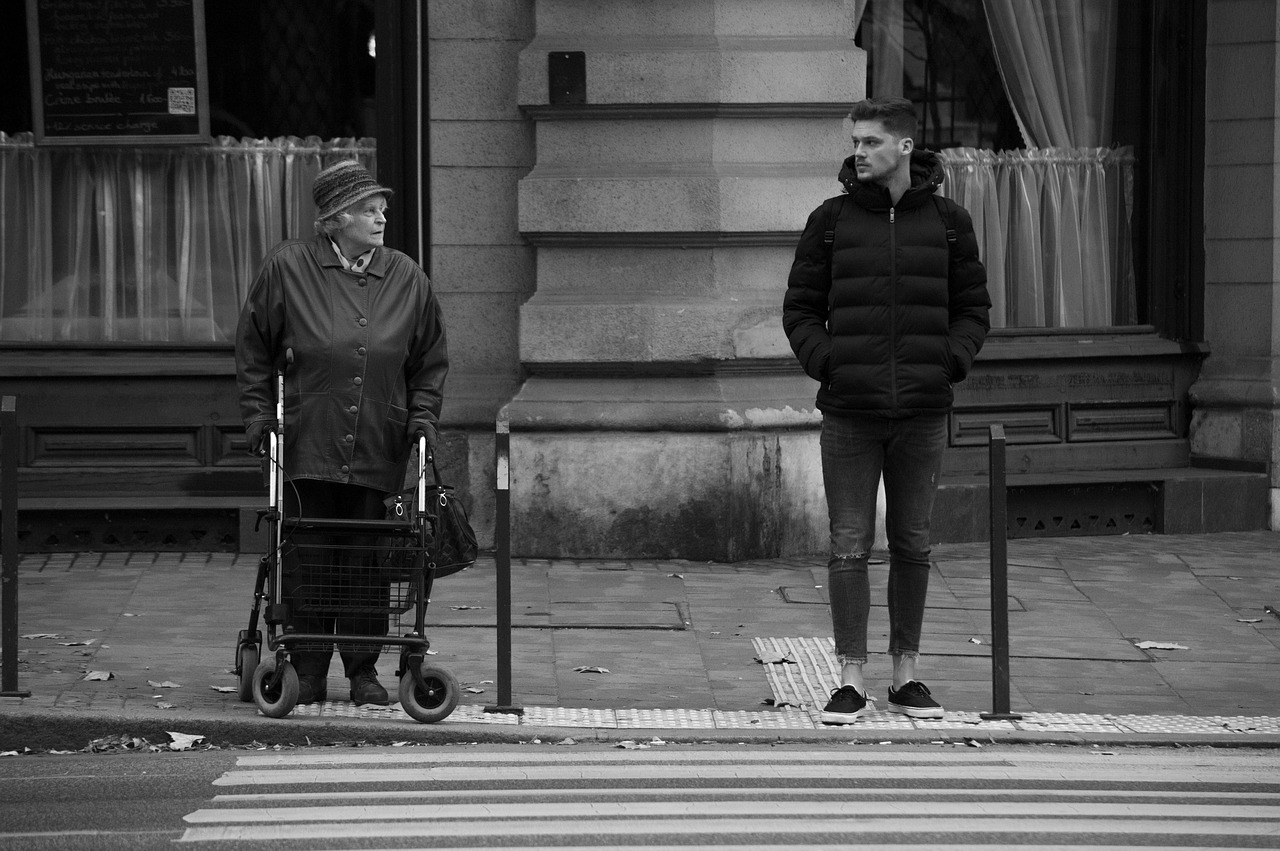
Can you get across the pedestrian crossing in time?
Have you ever had to hurry to make it to safely across the street because the pedestrian crossing light is about to turn red again?
If so, you are not alone. A recent study has found that pedestrian crossing timings are simply too brief for many elderly people and especially those with mobility problems.
The length of time given at crossing points usually assumes a walking speed of 1.2m per second. But the study found that the average speed of adults aged over 65 is only 0.77m per second.
So more than half of older people need to increase their normal walking speed by about 50 per cent, just to reach the other curb safely.
One of the researchers said: “This isn’t just a safety issue – it’s potentially a barrier to independence, physical activity, and social connection, all of which often decline in later life.”
Another said: “Allowing enough time to cross the road can boost confidence, support independence, and help them remain engaged in their communities, all key to a better quality of life.”
The study was published in the journal Age and Ageing.
____________________________________________________________
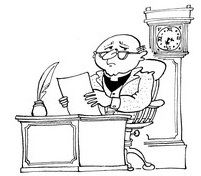
Editor: The Revd Dr Gary Bowness continues his tongue-in-cheek letters from ‘Uncle Eustace’…
The Rectory
St James the Least of All
My dear Nephew Darren
You closed your last letter with the remark that it was time to retire to bed with a cup of cocoa. That may be all very well for the pious intensity of a theological college – although a stiff whisky was always acceptable in my day – but it is not a style to continue once in the parish. I do feel obliged to give you a few hints about what should and should not be drunk in public as a parish priest.
Morning visits are to be discouraged, but if one is unavoidable, and you are invited to have a drink, then it has to be coffee. It is the only time of day when a mug is acceptable – provided, of course, that it is bone china or porcelain. In the afternoons one changes to tea, but only from cups. Blended varieties may be all very well for Curates in their first year, but it should be Darjeeling for an incumbent. And fruit teas are for Quakers only.
If an inappropriate vessel is offered, then the drink should be accepted, but left untouched. Since the visit will be discussed in the finest detail throughout the parish the moment you have left, your host will soon learn why and not make the same error a second time. It is for the same reason that if you ever want to circulate a piece of news round the parish as quickly as possible, never put it in the parish magazine, just mention it casually during one of your visits. Everyone will know by teatime.
Alcoholic drinks must be carefully judged. A sherry – dry, naturally – is probably best if you are invited to lunch. In the early evening, a gin and tonic would be the drink of choice. To ask for whisky would indicate that you are about to go over to Rome, and a mineral water that you have your roots in non-conformity. Beer is never, ever drunk in someone’s house unless you suffer from some personal tragedy, such as being the diocesan youth chaplain.
However, an occasional beer in the pub with the bell-ringers (who will be real ale fanatics to a man) or after choir practice – which seems to be the real purpose of holding practices anyway – or as a treat for the sacristan, will show you are a man of the people. It is some years since I visited the pub.
Understanding wine should be taught at every theological college as an essential part of the ministry. Develop a taste for claret, dear boy, and you will be starting your journey towards high office.
And perhaps you should give that tin of cocoa to the verger.
Your loving uncle,
Eustace
___________________________________________________________________

By the Revd Roy Shaw, a retired but active priest in the diocese of York, where he is a spiritual director
.
Winnie the Pooh and Lent 2026
Remember the Winnie the Pooh stories? And Kanga’s insistence on Baby Roo’s taking his Strengthening Medicine? It’s ‘really quite a nice taste when you get used to it’, she explained, although I’m not convinced Baby Roo always agreed.
It can be helpful to think of Lent as a sort of medicine; an opportunity to strengthen us in the things that are good, rein in other facets of our personality, and reset the compass to the true North of following Jesus. A Spring-clean of the soul, if you like.
Baby Roo (and Piglet on the one occasion he was subject to it) found Strengthening Medicine not to their liking, and we may groan inwardly at the thought of ‘giving up something for Lent’. Think of what lies behind this ‘giving up’. It’s so that we may be strengthened, our character refined, our prejudices examined, our junk thrown overboard, and we may come to Passiontide and Easter more fit to walk the way of the Cross, and rise in new life with Jesus at His Resurrection.
Nor is Lent just a case of giving up chocolate. One year I gave up Facebook for Lent, having spent far too much time scrolling through it each day. It freed me to do other, more constructive things. And instead of giving up, why not take up something you’ve been meaning to do but never got round to; something life-affirming, something good for God.
Lent begins on Ash Wednesday, which this year falls on 18th February. Many Christians go public with their intention to keep a good Lent by being ‘ashed’- the sign of the Cross made on the forehead in a mixture of ash and holy oil at a special service that day. The ash is usually the burnt remains of the palm crosses from last year.
Having been ashed, the intention of the 40 days of Lent is to maintain a steady course closer to God, symbolised by the giving up of something – like chocolate – which has a hold on us. We walk with Jesus on the way to the Cross, mindful of the ‘riches of God’s kindness, forbearance and patience’ as St Paul has it, and mindful too of Jesus’ choice of the Cross as a way for us to enter those riches more fully.
And to face the immensity of that sacrifice, and the immensity of God’s riches made available to us in Jesus, we need all the Strengthening Medicine we can get!
______________________________________________
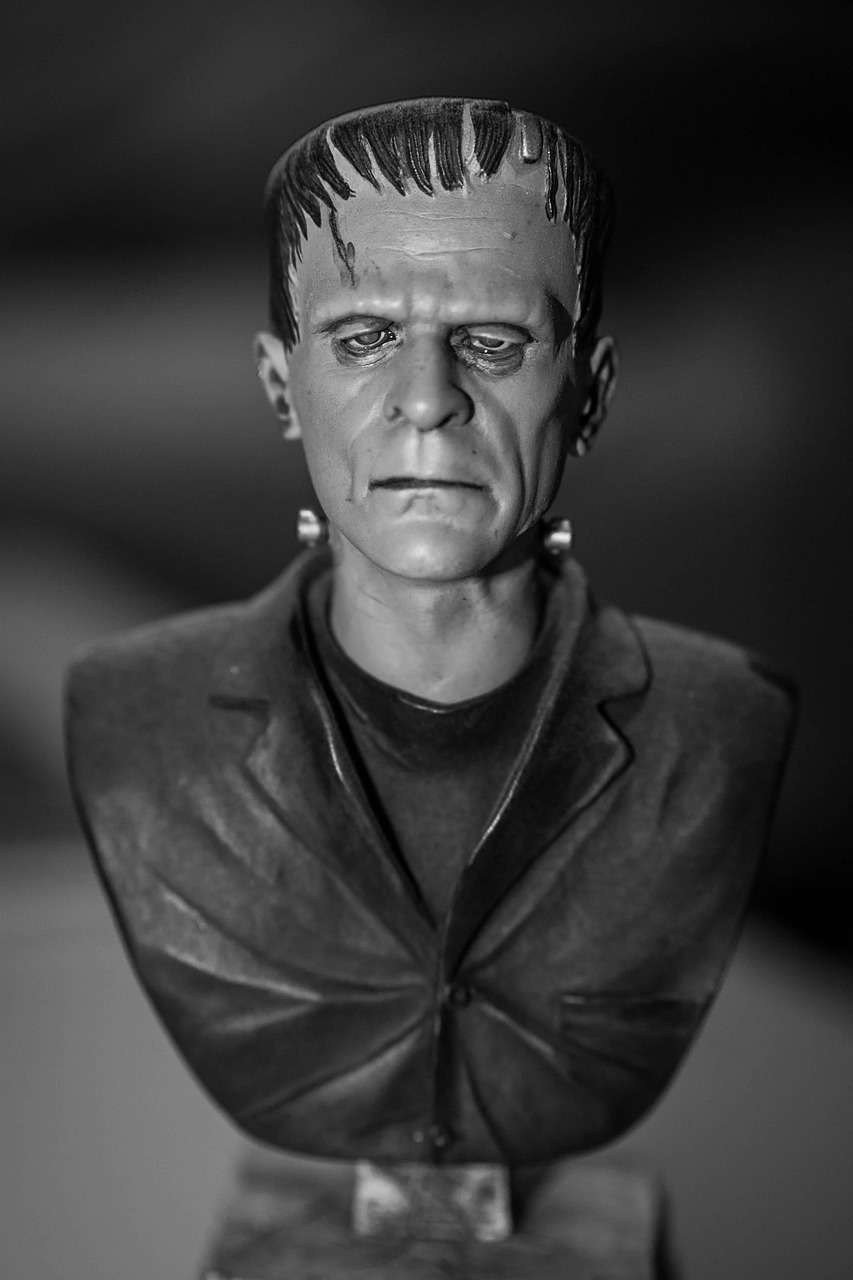
Mary Shelley and Frankenstein
It was 175 years ago, on 1st February 1851, that the novelist Mary Shelley died. She is best known for her Gothic novel Frankenstein.
Her parents were the influential philosophers William Godwin and Mary Wollstonecraft, a strong advocate of women’s rights who died 11 days after Mary’s birth from complications. The future Mary Shelley was herself fascinated by books and philosophy but spent two long, enjoyable spells “for her health” with the Baxters, a dissenting family who lived near Dundee.
She started on the novel Frankenstein – not the name of the eight-foot, lovelorn ‘Christian’ monster but of the scientist who created him – at the age of 18 after a conversation about ghosts with her husband, the atheist Romantic poet Percy Bysshe Shelley, and others. After her book was published anonymously, many suspected that her husband and written it or was co-author, but this was not the case: he may have done some light editing.
Mary, a baptised Anglican who came to despair and doubt, wrote several other books, but her life was tragic on many levels. Her husband had affairs, and they mixed in circles where that was encouraged. A four-year period in Italy with Byron and others, initially welcomed by Mary, became especially hard for her to endure. According to him, she had described Naples as “a paradise inhabited by devils”.
Three of her four children died at a very young age; only the fourth, Percy Florence, reached adulthood. And her husband died, aged only 29, in a mysterious sailing accident in 1822 in The Gulf of Spezia near Genoa.
Her last book, however, was a travel narrative about rambles in Germany and Italy which she had undertaken with her son Percy in the early 1840s. She died aged 53, perhaps of a brain tumour or a stroke. She was buried at St Peter’s Church in Bournemouth.
_______________________________________________
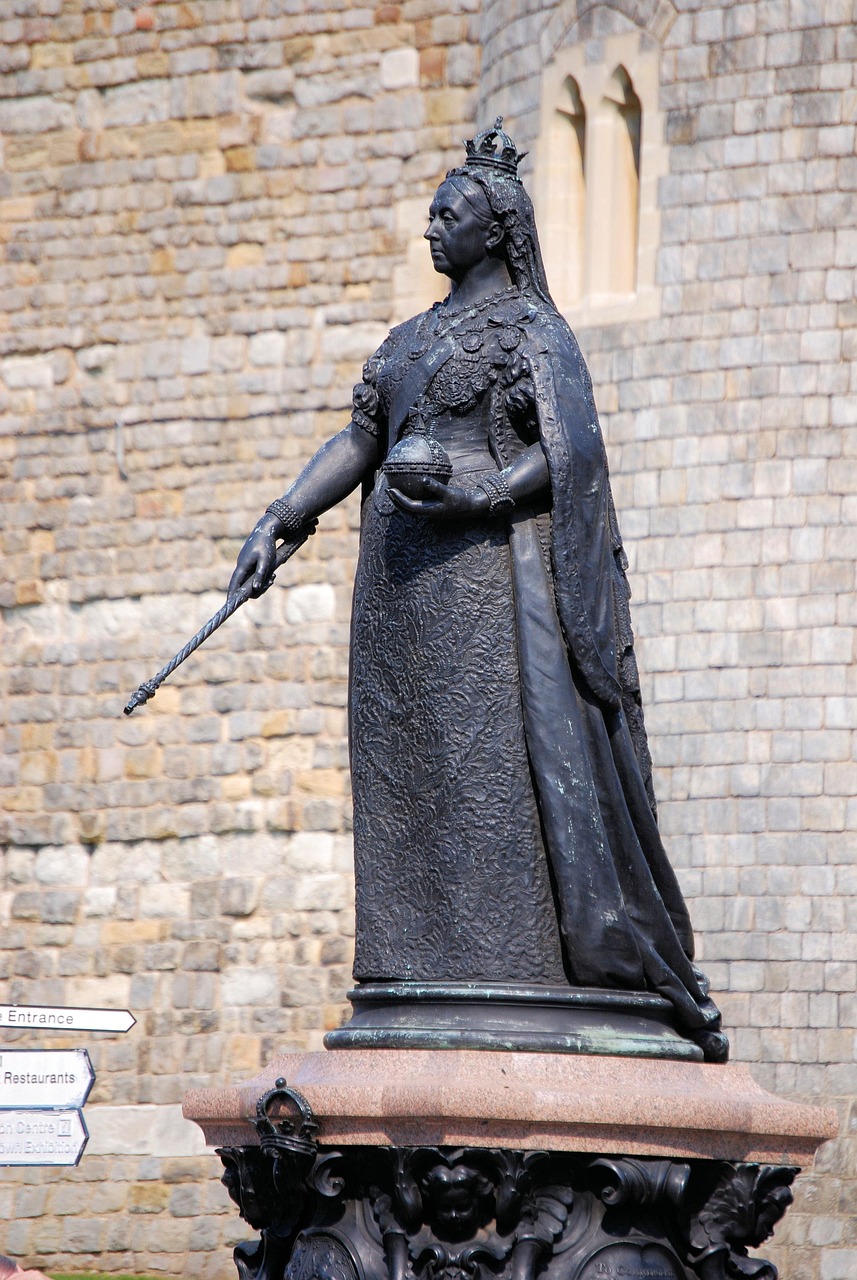
by Tim Lenton.
The funeral of Queen Victoria
Exactly 125 years ago, on 2nd February 1901, the funeral of Queen Victoria took place.
She had died at the age of 81 on 22 January, having ruled for nearly 64 years, and her death took her family, courtiers and subjects by surprise in difficult times. The Boer war was still in progress, and the previous year the Prince of Wales had been shot at in Belgium, by a boy who was protesting against the war.
Her third adult child – Alfred, Duke of Edinburgh – had just died, another was near death, and she herself had been confined to a wheelchair, almost blind and often confused. She died at the remote Osborne House on the Isle of Wight, and when it happened there was no-one alive who could remember how to bury a monarch.
Victoria had asked for a full military state funeral, and there were secret instructions concerning mementoes of her personal servant, John Brown. The official service in St George’s Chapel was chaotic because of timing errors, but it was followed by an emotional ceremony for the family on 4th February, in the mausoleum the queen had built for her husband at Frogmore, adjoining Windsor Castle, where the Queen was laid to rest beside her much-loved Prince Albert.
The total cost was £35,500 (£4.5 million). Victoria had outlived all the members of her Privy Council alive in 1837; all the members who had sat in the House of Commons at that time; and all nine of her bridesmaids.
What has been described as the godly domesticity of the Victorian era appealed to a mainly Protestant public, centring more on morals than on radical evangelicalism and effective prayer. One historian noted the transformation in the general British attitude from “aggressive, brutal, rowdy, outspoken, riotous, cruel and bloodthirsty” to “inhibited, polite, orderly, tender-minded, prudish and hypocritical”.
________________________________________________________

Paul Hardingham continues his series on the books of the Bible.
What’s the Big Idea?
An Introduction to the Books of the Old Testament: Isaiah
Isaiah is often regarded as the greatest of the prophets. His name means ‘The Lord saves’ and he began his 50-year ministry in 740 BC when King Uzziah died (6:1). Many scholars challenge the claim that Isaiah wrote the entire book, however there are striking verbal parallels between chapters 1–39 and 40–66.
Isaiah spoke during the stormy period marking the expansion of the Assyrian empire and the decline of Israel. The Assyrians destroyed the northern kingdom in 721. Judah was left to decide whether they would make alliances with other kingdoms or rely on God to protect them. Isaiah warns Judah that her sin would bring captivity in Babylon, which eventually took place in 586.
Isaiah sees the Messiah coming from the line of David. He speaks of a new temple being established (ch2); a child born with a new kingdom (ch9) and judging differently to other kings (ch11) as well as the nature of His suffering (ch53). The ‘suffering servant’ (chapters 42–53) also applies to Israel as a nation, who are called to be a ‘light for the Gentiles’ (42:6). Not surprisingly Jesus applies Isaiah’s words to His own life and ministry. eg Is 61:1 quoted in Luke 4:18. Throughout his book Isaiah presents the full dimensions of God’s judgment and salvation as ‘the Holy One of Israel’ (6:1), as well as the ‘Sovereign Lord’ far above all nations (40:15–24).
Isaiah looks forward to the promise of a new city of Zion (chs 60-66), in which the people offer praise to the Holy One of Israel. ‘Behold, I will create new heavens and a new earth. ‘The former things will not be remembered, nor will they come to mind.’ (65:17).
_________________________________________________

Eating Disorders Awareness Week: 23rd Feb to 1st March
Do you suffer from an eating disorder? Or are you close to someone who struggles with one? If so, then you will know the long battle that sufferers can wage with anorexia, bulimia, binge eating and EDNOS (or ‘eating disorder not otherwise specified’.)
Eating disorders ruin lives. They ruin relationships. They also ruin careers. They are estimated to cost the UK economy about £9.5 billion a year.
This year the annual Eating Disorders Awareness Week website says: “An eating disorder can be isolating, making people feel alone, whether someone has an eating disorder themselves or whether they are supporting someone.
And so it is that “We’re celebrating the power of community and the vital role family, friends, and other support networks play in helping someone feel supported, understood, and never alone on their journey from seeking help, undergoing treatment and beyond. How can people with eating disorders be best supported by their employer and colleagues? Visit  https://edaw.beateatingdisorders.org.uk for details.
https://edaw.beateatingdisorders.org.uk for details.
___________________________________________________________

Three in four car thefts unsolved
Keep a close eye on your car this year, because sadly, no one else seems to be able to do so. Recent figures have revealed that more than 121,000 car theft offences were not solved in 2024-25.
The British Transport Police, South Yorkshire, City of London, Sussex and Warwickshire police forces reported that more than 80 per cent of car thefts were unsolved. 35 of the 44 police forces in England and Wales had a total rate of 60 per cent of all cases going unsolved. Some critics even say that the dismal figures shows that car theft has been decriminalised in the UK.
Of course, theft has been around for a long time. For this very reason, Jesus warned us not to over-value the things that we own. He said: “Do not store up for yourselves treasures on earth, where … thieves break in and steal.” (Matthew 6:19).
Sadly, no data exists from the 1st century, to tell us how many stolen camels and donkeys were ever recovered.
____________________________________________
Book Review
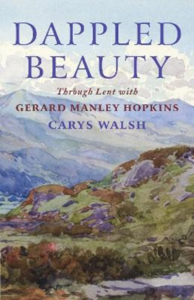
Dappled Beauty – Through Lent with Gerard Manley Hopkins
By Carys Walsh, Canterbury Press, £12.99
Gerard Manley Hopkins is one of English literature’s most celebrated religious poets and a powerful companion through the Lenten season. This book takes readers on a journey of reflection and renewal, guided by Hopkins’ vivid imagery, inventive language and deep theological insight.
Whether you are new to Hopkins or a long-time admirer, Dappled Beauty opens a poetic and prayerful path through the season, from Ash Wednesday to Easter Day.
___________________________________________________
All in the month of February
It was:
300 years ago, on 20th Feb 1726 that William Prescott, an American colonel in American Revolutionary War was born. Famous for giving the order: “Don’t fire until you see the whites of their eyes.”
200 years ago, on 4th Feb 1826 that James Fenimore Cooper’s historical romance novel The Last of the Mohicans was published.
175 years ago, on 1st Feb 1851 that novelist Mary Shelley died, aged 53. Best known for her Gothic novel Frankenstein.
125 years ago, on 2nd Feb 1901 that the funeral of Queen Victoria took place.
80 years ago, on 11th Feb 1946, that the Revised Standard Version of the New Testament was published. It was the first major English-language update of the Bible since the King James version was published in 1611.
Also 80 years ago, on 19th Feb 1946 that mathematician and cryptanalyst Alan Turing presented a detailed paper for the national Physical Laboratory that gave the first reasonably complete design of a stored-programme computer.
70 years ago, on 11th Feb 1956 that two members of the Cambridge spy ring, British diplomats Guy Burgess and Donald Maclean, announced that they had defected to the Soviet Union. They had both vanished in mysterious circumstances in 1951.
65 years ago, on 9th Feb 1961 that the Beatles played at the Cavern Club in Liverpool for the first time.
50 years ago, on 11th Feb 1976 that John Curry won Britain’s first-ever Olympic gold medal in figure skating.
Also 50 years ago, on 23rd Feb 1976 that artist the L S Lowry died. Known for his bleak industrial landscapes of north-west England, populated with matchstick men.
40 years ago, on 12th Feb 1986 that the Treaty of Canterbury was signed by Britain and France. It was the agreement to construct the Channel Tunnel linking the two countries. The tunnel opened in 1994.
30 years ago, on 15th Feb 1996 that the oil tanker Sea Empress ran aground near Milford Haven in Wales, causing a major oil spill along the coastlines of Wales and Ireland.
25 years ago, on 12th Feb 2001 that the Human Genome Project announced the publication of the first complete working draft of the human genome.
Also 25 years ago, on 19th Feb 2001 that the first case of foot-and-mouth disease in the 2001 UK outbreak was detected at an abattoir in Essex.
20 years ago, on 18th Feb 2006 that the Rolling Stones played the world’s largest free rock concert on Copacabana beach, Rio de Janeiro. An estimated 2 million people attended.
_______________________________________________________
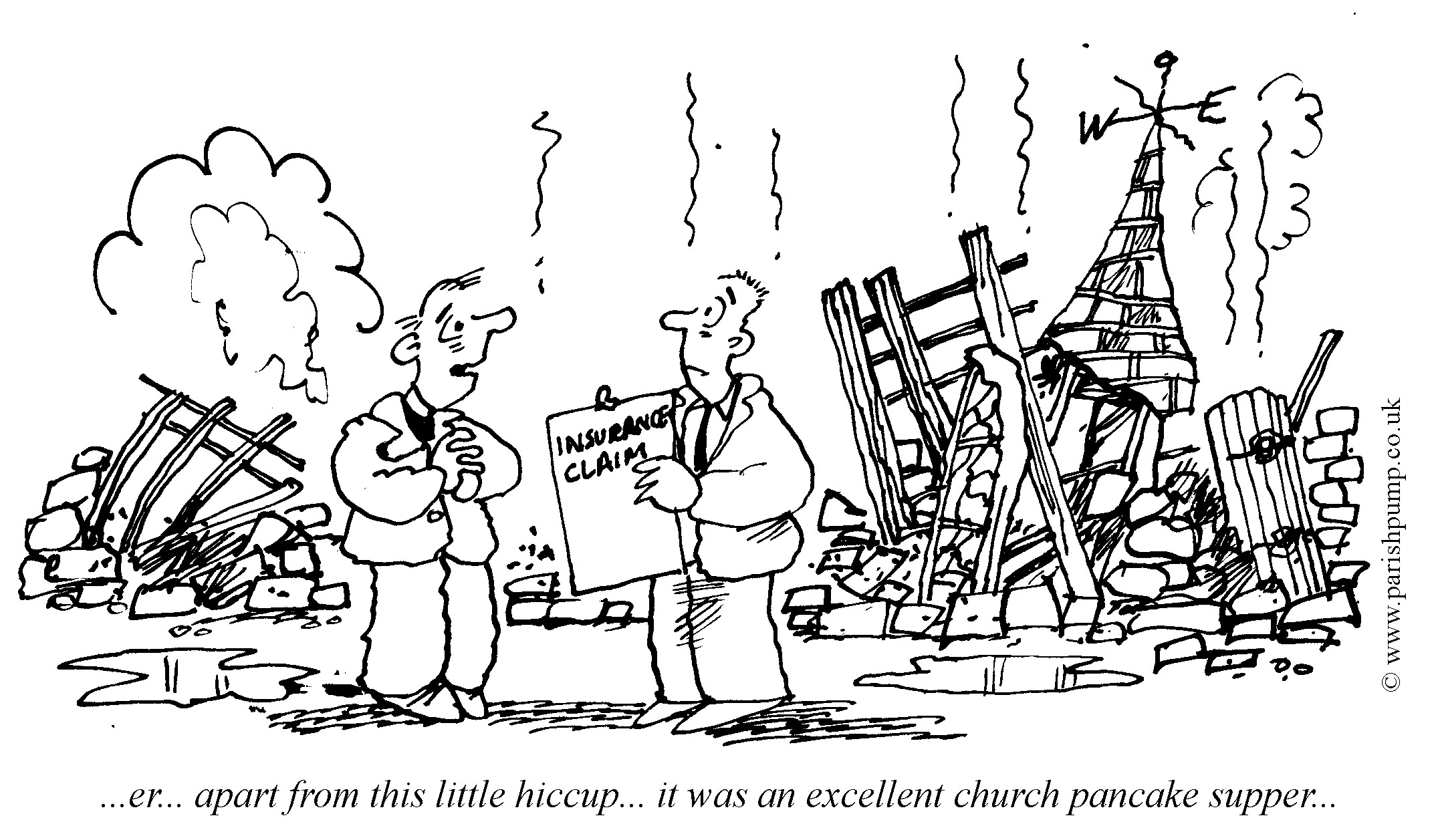

Smile Lines
It hurts
A little girl told her mother one day before lunch that her stomach was hurting. Her mother replied: “That’s because it’s empty, you have to put something into it!”
That evening the minister and his wife came for dinner. The minister looked a bit rough and explained that his head was hurting him. The little girl gave him a sweet smile and said encouragingly: “That’s because it’s empty, you have to put something into it!”
**
Hymns for Professionals
Dentist – Crown Him with many crowns
Contractors – The Church’s one foundation
Obstetricians – Come labour on
Golfers – There is a green hill far away
Politicians – Standing on the promises
Librarians – Let all mortal flesh keep silent
**
God made us
A little girl sitting on her grandfather’s lap reached up to touch his wrinkled cheek. “Grandpa, did God make you?”
“Yes, sweetheart,” he answered, “God made me a long time ago.”
“Oh,” she paused. “Grandpa, did God make me too?” Her grandfather assured her that He had. Feeling his wrinkled cheek again, she observed, “God’s getting better at it, isn’t He?”
**
Post-Valentine
A man confided to his friend that he and his wife had had a serious argument the night before. “It finally ended,” he said, “when she came crawling to me on her hands and knees.”
“What did she say?” asked the friend, amazed.
The husband replied, “She said, ‘Come out from under that bed, you coward!'”**
Editor: With Valentine’s Day and romance in mind….
The Rules of Marriage
Here are the real-life answers from a group of children:
Question: How do you decide who to marry?
You got to find somebody who likes the same stuff. Like, if you like sports, she should like it that you like sports, and she should keep the chips and dip coming. – Alan, age 10
No person really decides before they grow up who they’re going to marry. God decides it all way before, and you get to find out later who you’re stuck with. – Kirsten, age 10
Question: What is the right age to get married?
23 is the best age because you know the person FOREVER by then. – Camille, age 10
No age is good to get married at. You got to be a fool to get married. – Freddie, age 6 (very wise for his age)
Question: How can a stranger tell if two people are married?
You might have to guess, based on whether they seem to be yelling at the same kids.
– Derrick, age 8
Question: What do you think your Mum and Dad have in common?
Both don’t want any more kids. -Lori, age 8
Question: What do most people do on a date?
Dates are for having fun, and people should use them to get to know each other. Even boys have something to say if you listen long enough.
– Lynnette, age 8
On the first date, they just tell each other lies and that usually gets them interested enough to go for a second date. – Martin, age 10
Question: What would you do on a first date that was turning sour?
I’d run home and play dead. The next day I would call all the newspapers and make sure they wrote about me in all the dead columns. – Craig, age 9
Question: When is it okay to kiss someone?
When they’re rich. – Pam, age 7
The law says you have to be eighteen, so I wouldn’t want to mess with that. – Curt, age 7
The rule goes like this: If you kiss someone, then you should marry them and have kids with them. It’s the right thing to do. – Howard, age 8
Question: Is it better to be single or married?
I don’t know which is better, but I’ll tell you one thing. I’m never going to have sex with my wife. I don’t want to be all grossed out. – Theodore, age 8
We congratulate our youth group for raising nearly £500 for drug abuse.
**
God made us
A little girl sitting on her grandfather’s lap reached up to touch his wrinkled cheek. “Grandpa, did God make you?”
“Yes, sweetheart,” he answered, “God made me a long time ago.”
“Oh,” she paused. “Grandpa, did God make me too?” Her grandfather assured her that He had. Feeling his wrinkled cheek again, she observed, “God’s getting better at it, isn’t He?”
**
Post-Valentine
A man confided to his friend that he and his wife had had a serious argument the night before. “It finally ended,” he said, “when she came crawling to me on her hands and knees.”
“What did she say?” asked the friend, amazed.
The husband replied, “She said, ‘Come out from under that bed, you coward!'”
**
Editor: With Valentine’s Day and romance in mind….
The Rules of Marriage
Here are the real-life answers from a group of children:
Question: How do you decide who to marry?
You got to find somebody who likes the same stuff. Like, if you like sports, she should like it that you like sports, and she should keep the chips and dip coming. – Alan, age 10
No person really decides before they grow up who they’re going to marry. God decides it all way before, and you get to find out later who you’re stuck with. – Kirsten, age 10
Question: What is the right age to get married?
23 is the best age because you know the person FOREVER by then. – Camille, age 10
No age is good to get married at. You got to be a fool to get married. – Freddie, age 6 (very wise for his age)
Question: How can a stranger tell if two people are married?
You might have to guess, based on whether they seem to be yelling at the same kids.
Question: What do you think your Mum and Dad have in common?
Both don’t want any more kids. -Lori, age 8
Question: What do most people do on a date?
Dates are for having fun, and people should use them to get to know each other. Even boys have something to say if you listen long enough. – Lynnette, age 8
On the first date, they just tell each other lies and that usually gets them interested enough to go for a second date. – Martin, age 10
Question: What would you do on a first date that was turning sour?
I’d run home and play dead. The next day I would call all the newspapers and make sure they wrote about me in all the dead columns. – Craig, age 9
Question: When is it okay to kiss someone?
When they’re rich. – Pam, age 7
The law says you have to be eighteen, so I wouldn’t want to mess with that. – Curt, age 7
The rule goes like this: If you kiss someone, then you should marry them and have kids with them. It’s the right thing to do. – Howard, age 8
Question: Is it better to be single or married?
It’s better for girls to be single but not for boys. Boys need someone to clean up after them. – Anita, age 9
Question: How would the world be different if people didn’t get married?
And the #1 Favourite is……..
Question: How would you make a marriage work?
Always tell your wife that she looks pretty, even if she looks like a train wreck – Ricky, age 10
**
Church bulletin notices that did not come out quite right…
We apologise for the following typo in last Sunday’s bulletin: ‘Lunch will be gin at 12:15.’ Please correct it to read ’12 noon.’ ”
Any church member aged over 18 can join our lay ministry programme. It requires a minimal amount of training and time. The first course is six weekly classes of about 200 hours each Tuesday night.
The Seniors group will have a picnic on Saturday. Each person is asked to bring either a friend or a vegetable in a covered dish.
Church Jumble Sale: All welcome. We can offer a gents three-speed bicycle, and two ladies for sale, in good running order.”
**
After Eden
Adam was out walking with his sons Cain and Abel. As they passed by the ruins of the Garden of Eden, one of the boys asked, “Father, what’s that place?”
Adam replied, “Boys, that’s where your mother ate us out of house and home.”
_______________________________________________
The views expressed in this magazine are those of the contributors and do not necessarily reflect those of St Mary's, it's clergy, the Church of England
or the Editors.



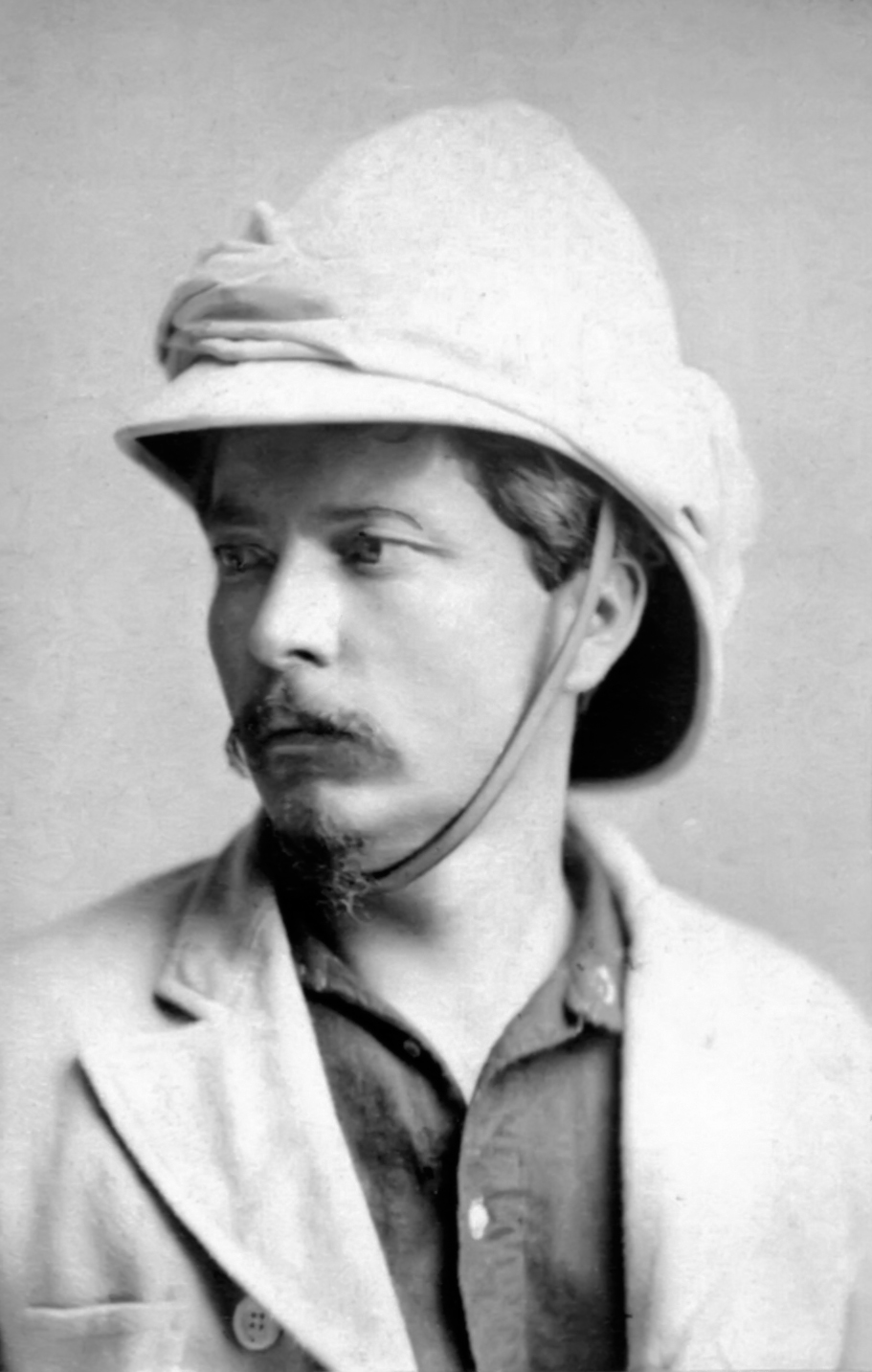
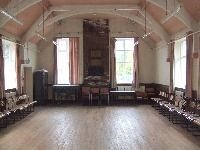
 Click to edit block quote. What quote or client recommendation really sums up your business?
Click to edit block quote. What quote or client recommendation really sums up your business? 
